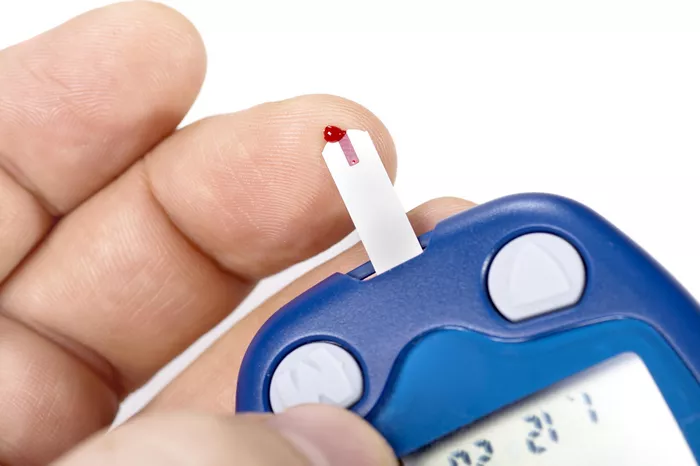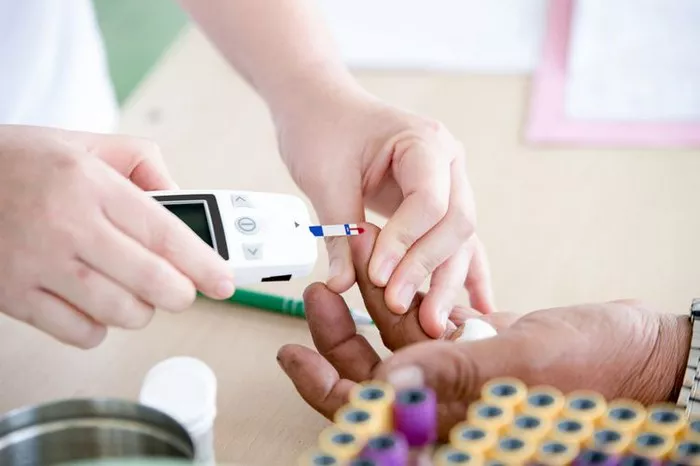Hyperglycemia, a condition characterized by elevated levels of glucose in the bloodstream, is commonly associated with excessive carbohydrate intake, insulin resistance, or insufficient insulin production. However, there exists a counterintuitive phenomenon where hyperglycemia occurs despite prolonged periods of not eating, a situation that perplexes both patients and healthcare providers alike. This paradoxical condition, often observed in individuals with diabetes, particularly type 2 diabetes, can be explained through a complex interplay of metabolic and hormonal mechanisms. This article delves into the intricacies of fasting-induced hyperglycemia, exploring its underlying causes, physiological pathways, and implications for diabetes management.
Understanding Glucose Homeostasis
To comprehend how hyperglycemia can occur in the absence of food intake, it is essential to first understand the fundamentals of glucose homeostasis. The human body maintains blood glucose levels within a narrow range through a delicate balance of glucose production, utilization, and storage. Key players in this regulatory system include insulin, a hormone produced by the beta cells of the pancreas, and glucagon, produced by the alpha cells of the pancreas.
Insulin facilitates the uptake of glucose into cells for energy production and storage as glycogen in the liver and muscles. It also inhibits hepatic glucose production. Conversely, glucagon promotes glycogenolysis (the breakdown of glycogen to glucose) and gluconeogenesis (the production of glucose from non-carbohydrate sources), thereby increasing blood glucose levels. Under normal physiological conditions, these hormones work in concert to maintain euglycemia (normal blood glucose levels).
The Dawn Phenomenon and Somogyi Effect
Two key phenomena help explain why fasting hyperglycemia can occur: the dawn phenomenon and the Somogyi effect. These conditions often manifest in the early morning hours, leading to elevated blood glucose levels upon waking.
The Dawn Phenomenon
The dawn phenomenon refers to an early morning rise in blood glucose levels, typically occurring between 2 AM and 8 AM, independent of food intake. This phenomenon is primarily driven by the circadian rhythm, which influences hormonal secretion patterns. During the early morning hours, there is an increase in the production of counter-regulatory hormones such as growth hormone, cortisol, and catecholamines (epinephrine and norepinephrine). These hormones promote hepatic glucose production and reduce peripheral glucose utilization by inducing a state of relative insulin resistance. As a result, blood glucose levels rise despite the absence of food intake.
The Somogyi Effect
The Somogyi effect, also known as rebound hyperglycemia, occurs in response to nocturnal hypoglycemia (low blood glucose levels during the night). When blood glucose levels drop too low, the body mounts a counter-regulatory response to prevent severe hypoglycemia. This response involves the release of glucagon and other counter-regulatory hormones, which stimulate hepatic glucose production. In individuals with diabetes, this compensatory response can overshoot, leading to hyperglycemia in the early morning hours. The Somogyi effect is often a consequence of excessive insulin administration or missed meals, which can precipitate nocturnal hypoglycemia.
The Role of Glucagon Resistance
In addition to the dawn phenomenon and the Somogyi effect, glucagon resistance plays a critical role in fasting hyperglycemia. Glucagon resistance is a condition wherein the liver becomes less responsive to the regulatory effects of glucagon. This resistance can lead to unchecked hepatic glucose production, even in the absence of food intake, contributing to fasting hyperglycemia.
Mechanisms of Glucagon Resistance
The mechanisms underlying glucagon resistance are multifaceted and involve alterations in glucagon signaling pathways and hepatic glucose metabolism. Several factors contribute to the development of glucagon resistance:
Insulin Resistance:
In individuals with type 2 diabetes, insulin resistance is a hallmark feature. Insulin resistance in the liver impairs the ability of insulin to suppress hepatic glucose production. This results in increased reliance on glucagon to regulate glucose homeostasis. Over time, chronic hyperglucagonemia (elevated levels of glucagon) can desensitize the liver to glucagon’s effects, leading to glucagon resistance.
Altered Glucagon Receptor Signaling:
The glucagon receptor (GCGR) is a key mediator of glucagon’s effects on the liver. Alterations in GCGR signaling, such as receptor downregulation or impaired post-receptor signaling, can diminish the liver’s responsiveness to glucagon. Studies have shown that changes in GCGR expression and function are associated with hepatic insulin resistance and increased hepatic glucose output.
Inflammation:
Chronic low-grade inflammation is a common feature in obesity and type 2 diabetes. Inflammatory cytokines, such as tumor necrosis factor-alpha (TNF-α) and interleukin-6 (IL-6), can interfere with glucagon signaling pathways, contributing to glucagon resistance. Inflammation-induced oxidative stress can also impair hepatic glucose metabolism.
Lipid Accumulation:
Ectopic lipid accumulation in the liver (hepatic steatosis) is often observed in individuals with type 2 diabetes. Lipid intermediates, such as diacylglycerol and ceramides, can disrupt insulin and glucagon signaling pathways, leading to dysregulated hepatic glucose production. Non-alcoholic fatty liver disease (NAFLD), a common comorbidity in type 2 diabetes, further exacerbates glucagon resistance.
Consequences of Glucagon Resistance
Glucagon resistance results in a paradoxical situation where the liver continues to produce and release glucose into the bloodstream despite the presence of elevated blood glucose levels. This dysregulated hepatic glucose production contributes to fasting hyperglycemia and can complicate diabetes management. The persistence of elevated blood glucose levels, especially during fasting periods, poses significant challenges in achieving glycemic control and increases the risk of diabetes-related complications.
Implications for Diabetes Management
The occurrence of fasting hyperglycemia in individuals with diabetes necessitates a comprehensive approach to diabetes management. Understanding the underlying mechanisms and contributing factors is essential for developing effective therapeutic strategies. Several approaches can be considered to address fasting hyperglycemia:
Optimizing Insulin Therapy
For individuals with insulin-dependent diabetes, optimizing insulin therapy is crucial to prevent both nocturnal hypoglycemia and fasting hyperglycemia. This may involve adjusting the timing and dosage of basal insulin to match the individual’s circadian rhythm and insulin sensitivity. Continuous glucose monitoring (CGM) systems can provide valuable insights into glucose trends and help tailor insulin regimens to minimize glucose fluctuations.
Addressing Glucagon Resistance
Targeting glucagon resistance is a potential therapeutic strategy for managing fasting hyperglycemia. Several pharmacological agents are currently being investigated to modulate glucagon signaling pathways and improve hepatic glucose metabolism:
Glucagon Receptor Antagonists:
These agents inhibit the action of glucagon on its receptor, thereby reducing hepatic glucose production. Clinical trials have shown promising results in lowering fasting glucose levels and improving glycemic control in individuals with type 2 diabetes.
Dual GLP-1/Glucagon Receptor Agonists:
Glucagon-like peptide-1 (GLP-1) is an incretin hormone that enhances insulin secretion and suppresses glucagon release. Dual agonists that target both GLP-1 and glucagon receptors can provide complementary effects on glucose homeostasis, reducing fasting glucose levels and improving overall glycemic control.
SGLT2 Inhibitors:
Sodium-glucose co-transporter 2 (SGLT2) inhibitors reduce renal glucose reabsorption, promoting glycosuria (excretion of glucose in the urine). By lowering blood glucose levels, SGLT2 inhibitors can reduce the need for hepatic glucose production, indirectly addressing glucagon resistance.
Lifestyle Modifications
Lifestyle interventions play a pivotal role in managing diabetes and mitigating fasting hyperglycemia. Key strategies include:
Dietary Adjustments:
Consuming a balanced diet with controlled carbohydrate intake can help stabilize blood glucose levels. Incorporating low glycemic index (GI) foods and ensuring adequate protein and fiber intake can mitigate glucose fluctuations during fasting periods.
Physical Activity:
Regular physical activity enhances insulin sensitivity and promotes glucose utilization by skeletal muscles. Engaging in moderate-intensity exercise, such as brisk walking or cycling, can help lower fasting blood glucose levels and improve overall metabolic health.
Weight Management:
Achieving and maintaining a healthy weight is crucial for individuals with type 2 diabetes. Weight loss can improve insulin sensitivity, reduce hepatic steatosis, and alleviate glucagon resistance, thereby contributing to better glycemic control.
Monitoring and Education
Regular monitoring of blood glucose levels, especially during fasting periods, is essential for identifying patterns of fasting hyperglycemia and adjusting treatment plans accordingly. Continuous glucose monitoring (CGM) systems can provide real-time data on glucose trends and help identify the impact of different interventions on fasting glucose levels.Patient education is a cornerstone of effective diabetes management. Empowering individuals with diabetes to understand the factors contributing to fasting hyperglycemia and the importance of adherence to prescribed therapies can enhance self-management and improve outcomes.
See also:Can Eating Too Much Sugar Cause Hyperglycemia?
Conclusion
The paradox of fasting hyperglycemia in individuals with diabetes is a multifaceted phenomenon influenced by hormonal, metabolic, and lifestyle factors. Understanding the underlying mechanisms, including the roles of the dawn phenomenon, the Somogyi effect, and glucagon resistance, is crucial for developing effective therapeutic strategies. Optimizing insulin therapy, addressing glucagon resistance, implementing lifestyle modifications, and ensuring regular monitoring are essential components of comprehensive diabetes management. By addressing fasting hyperglycemia, healthcare providers can improve glycemic control, reduce the risk of complications, and enhance the overall quality of life for individuals with diabetes.
Related topics:
Why Does Pheochromocytoma Cause Hyperglycemia



























